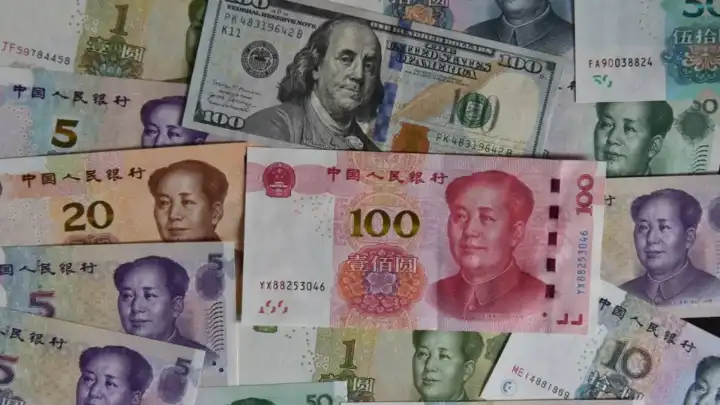In a surprise move, the People’s Bank of China (PBOC) took decisive action on Thursday to bolster its currency, the yuan, after it showed signs of weakening against the U.S. dollar.
Table of Contents
The central bank set a much stronger-than-expected daily reference rate for the yuan, a clear signal to the market that it will not tolerate excessive currency depreciation. The intervention comes amid concerns about China’s slowing economic growth and capital outflows.
This move is significant as it demonstrates Beijing’s willingness to step in to maintain financial stability, even as it grapples with broader economic challenges. The stability of the yuan is crucial not only for China but for the global economy, as it impacts trade flows and investor sentiment across emerging markets.
📉 Why the Yuan Was Weakening
Several factors have been putting downward pressure on the Chinese yuan recently. A key driver is the divergence in monetary policy between China and the United States. While the U.S. Federal Reserve has been raising interest rates to combat inflation, China has been easing its policy to support its struggling economy.
Other contributing factors include:
- Slowing Economic Growth: Recent data has pointed to a slowdown in China’s manufacturing, retail, and real estate sectors.
- Capital Outflows: Higher interest rates in the U.S. make dollar-denominated assets more attractive, leading some investors to move capital out of China.
- Geopolitical Tensions: Ongoing trade and political tensions have also weighed on investor confidence.
🏦 How the Intervention Works
Unlike many major currencies that float freely, the yuan is managed within a narrow band around a daily reference rate set by the PBOC. By setting this “fix” at a level significantly stronger than market expectations, the central bank sends a powerful message that it wants to see a stronger currency. This makes it more difficult for traders to bet against the yuan and can help stabilize its value.
The PBOC can also use other tools, such as instructing state-owned banks to sell dollars in the open market, to directly support the yuan’s exchange rate. Thursday’s strong fixing is the most visible tool in its arsenal.
🌏 Global Economic Implications
A stable yuan is generally seen as a positive for the global economy. A rapidly depreciating Chinese currency could trigger competitive devaluations in other emerging markets and add to global financial instability. By acting to support the yuan, Beijing is signaling its intent to be a source of stability.
However, the move also highlights the underlying weakness in China’s economy. Analysts will be watching closely to see if this currency intervention is followed by more substantial stimulus measures to address the root causes of the economic slowdown.
More Topics
- Bryan Kohberger Complains of ‘Psychological Torture’ from Inmates in Idaho Prison
- US Economy – July PPI Report Exceeds Expectations
- US Stock Market Declines on Inflation Data
- Quantum Startup Aether Systems Secures Funding
- Innovate Pharma CEO Steps Down Unexpectedly
- Global Auto Corp Delays EV Truck Production
- Weaker Retail Sales Signal Consumer Strain

